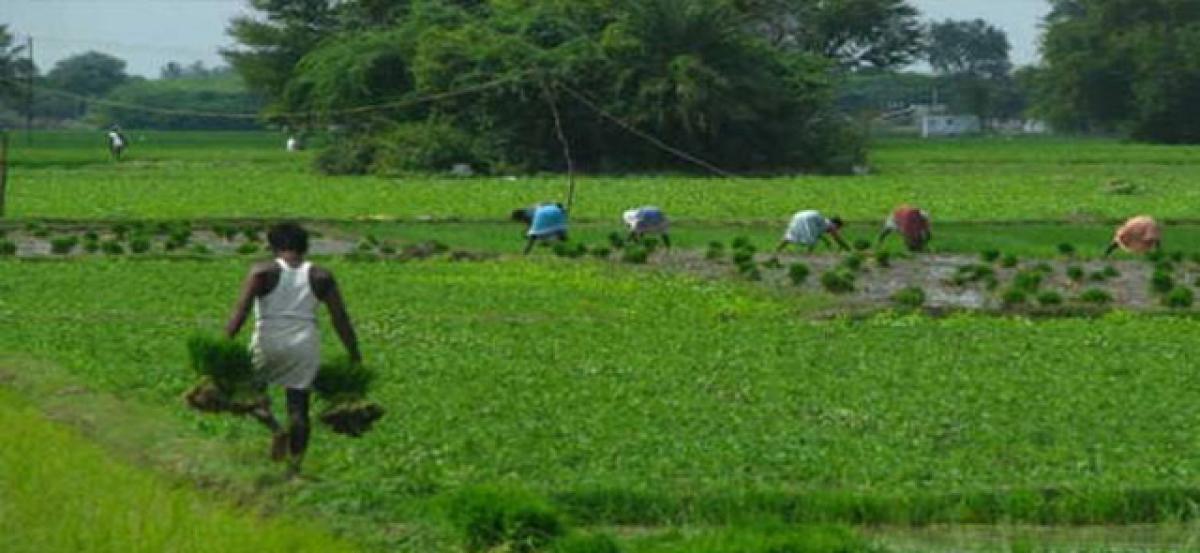Live
- Historic Mothe Gadda temple damaged in Godavari flooding
- Nellore District: People express concern over lack of security at prominent temples
- MLA Dr Parnika takes part in Bathukamma celebrations
- International Coffee Day at 6oz Artisan Coffee
- Three, including couple killed in road accident
- Ananta Lakshmi International School students shine in School Games
- Couple ends life after being cheated on pretext of SCCL job
- Collector inspects LRS process at ground level
- Anantapur: 15 students selected in campus recruitment
- US opens 2.5 lakh new visa slots in India
Just In

Advancement of kharif season by at least three weeks is planned in the district. With the initiative taken up by Collector K Dhanunjaya Reddy, awareness camps were being conducted across the district to motivate farmers in this regard.
Srikakulam: Advancement of kharif season by at least three weeks is planned in the district. With the initiative taken up by Collector K Dhanunjaya Reddy, awareness camps were being conducted across the district to motivate farmers in this regard.
Normally, kharif season starts from the second week of July as paddy is the prime crop during this time. However, this time, officials are chalking out plans to start the kharif season by growing of nurseries from June 15 and start sowing from second week of July.
The main aim is for advancement of kharif season to avoid damage of paddy crop due to cyclones normally occurred in second half of October till the end of November. With the advancement of the kharif season, harvesting of crops would be completed by October 15.
With the completion of the modernisation works of Thotapalli Barrage, water from the Thotapalli reservoir could be released early. The Madduvalasa project improvement, repairs for Narayanapuram anicut, modernisation of Gotta Barrage canals and expectations on release of water from Vamsadhara reservoir from the current kharif season are the reasons for the advancement of kharif season.
In addition to it this, summer rains this year also provided a respite and will be helpful for taking up kharif works early. With the advancement, the two kharif crops can be easily cultivated. After harvesting of paddy, irrigated dry (ID) crops like maize and millets could be started.
“We cultivated maize during the last rabi season with zero tillage soon after harvest of paddy and saved 25 days and Rs 5,000 investment on an acre” Mahanti Krishna, Yenduva Santosh, Pativada Laxman farmers of Ranastalam mandal said while speaking to The Hans India.
Collector K Dhananjaya Reddy said, “Here, the lands are fertile and farmers are hardworking. But as they lack awareness, they could not cultivate the second crop after the first crop was destroyed in the cyclone. We made efforts to bring in some changes by educating farmers.”
“Basing on the District Collector’s instructions, we conducted awareness camps at the village-level with our officers and scientists,” Joint Director for Agriculture G Rama Rao explained.
By Chowdari Lakshmana Rao

© 2024 Hyderabad Media House Limited/The Hans India. All rights reserved. Powered by hocalwire.com







